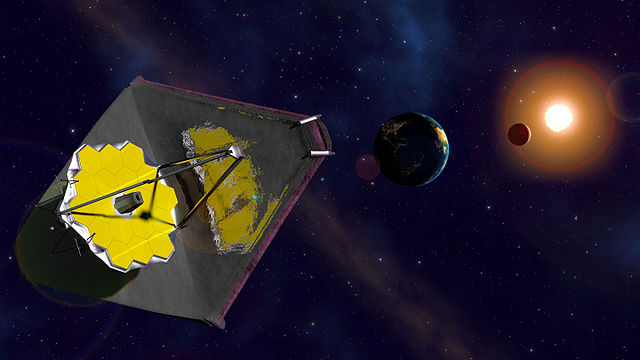


The Problem of Earth Privilege: It’s Getting Worse
On today’s ID the Future, astrobiologist Guillermo Gonzalez, co-author of The Privileged Planet, provides a rapid survey of some of the growing evidence that Earth is finely tuned in numerous ways to allow for life. He draws a helpful distinction between local fine tuning and universal fine tuning. And he tells us about the many extra-solar planets astronomers have discovered in recent years and how all that new data continues to undermine the misguided assumption (encouraged by the misnamed “Copernican Principle”) that Earth is just a humdrum planet. Far from it, Gonzalez argues. The conversation is occasioned by Gonzalez’s essay in a newly released anthology, Science and Faith in Dialogue.

More from Casey Luskin on Our Intelligently Designed Planet—Plus Q&A
Today’s ID the Future continues geologist Casey Luskin’s presentation about how Earth is fine tuned in numerous ways for life, a talk he gave at the 2022 Dallas Conference on Science and Faith. Here in the second half, he highlights the many ways Earth’s precise mix of atmospheric gases is strikingly fit for life. On top of that (or rather, beneath that), Earth’s active geology and water-rich surface—unique in our solar system—are masterful at helping maintain our life-friendly atmosphere over long ages. Luskin argues that these and other finely tuned characteristics of planet Earth strongly suggest intelligent design. He then offers an additional design argument, this one aesthetic in nature, and then takes questions from the audience. Part 1 of his talk is here.

Casey Luskin on the Intelligent Design of Earth for Life
On today’s ID the Future geologist Casey Luskin explains how Earth contains many intricate geological processes required for life. He argues that, taken together, this points to intelligent design rather than dumb luck. This episode is the first half of a talk Dr. Luskin presented at the 2022 Dallas Conference on Science and Faith. Stay tuned for Pt. 2 and a Q&A with his original audience.

Bijan Nemati on What the James Webb Telescope May Discover
Today’s ID the Future explores with physicist and space telescope expert Bijan Nemati the amazing discoveries that may await us when the singularly powerful James Webb space telescope goes on line in summer 2022. Nemati and host Jay Richards, co-author of The Privileged Planet, discuss the telescope’s ability to see far deeper into space than any previous telescope, and further into the past. If all goes well it will be able to see so far into the past, Nemati says, that we will get glimpses of the universe close to when galaxies were first forming, not long after the Big Bang. These glimpses may confirm our most current ideas of early cosmic history and galaxy formation, or turn them on their head. Nemati also explains how the new space telescope, already launched and arrived at its orbital point in space, will provide us potentially exciting new information about extrasolar planets. What are the telescope’s strengths and weaknesses, and are there any other telescopes in the works to complement the Webb telescope? As a matter of fact, Nemati himself is working on one of those future telescopes, and he gives Richards and podcast listeners a sneak peek at the project.

Our Finely Tuned Planet Suggests More than Dumb Luck
Today’s ID the Future spotlights Canceled Science: What Some Atheists Don’t Want You to See with a focus on the book’s look at our privileged planet Earth, and how its location in the galaxy and solar system, as well as various unusual features, makes it strikingly fit for life. Is it just “dumb luck,” as one scientist put it? Host Eric Anderson continues his multi-part conversation with the book’s author, Biola physics professor Eric Hedin, who suggests that “dumb luck” is more of a cop-out than an explanation, and that when one takes all the evidence together, a better explanation for our finely tuned place in the cosmos is a fine-tuner, a designing intelligence. It’s just a taste of the deeper yet extremely accessible dive Hedin makes in his new book, available at Amazon, Barnes & Noble and other online booksellers.